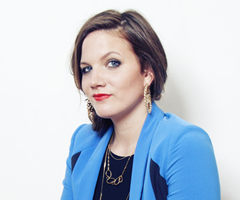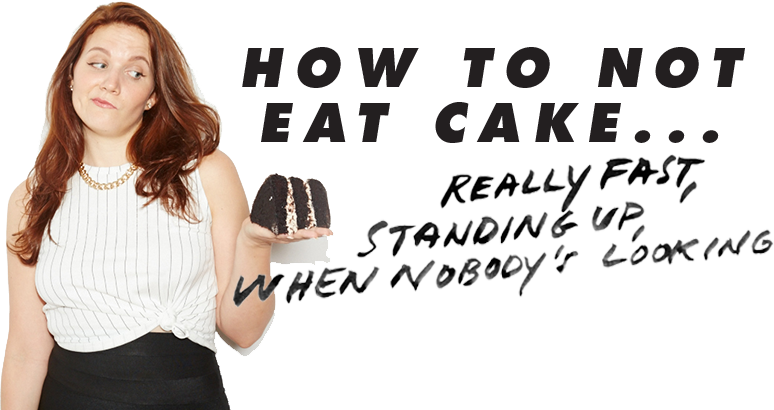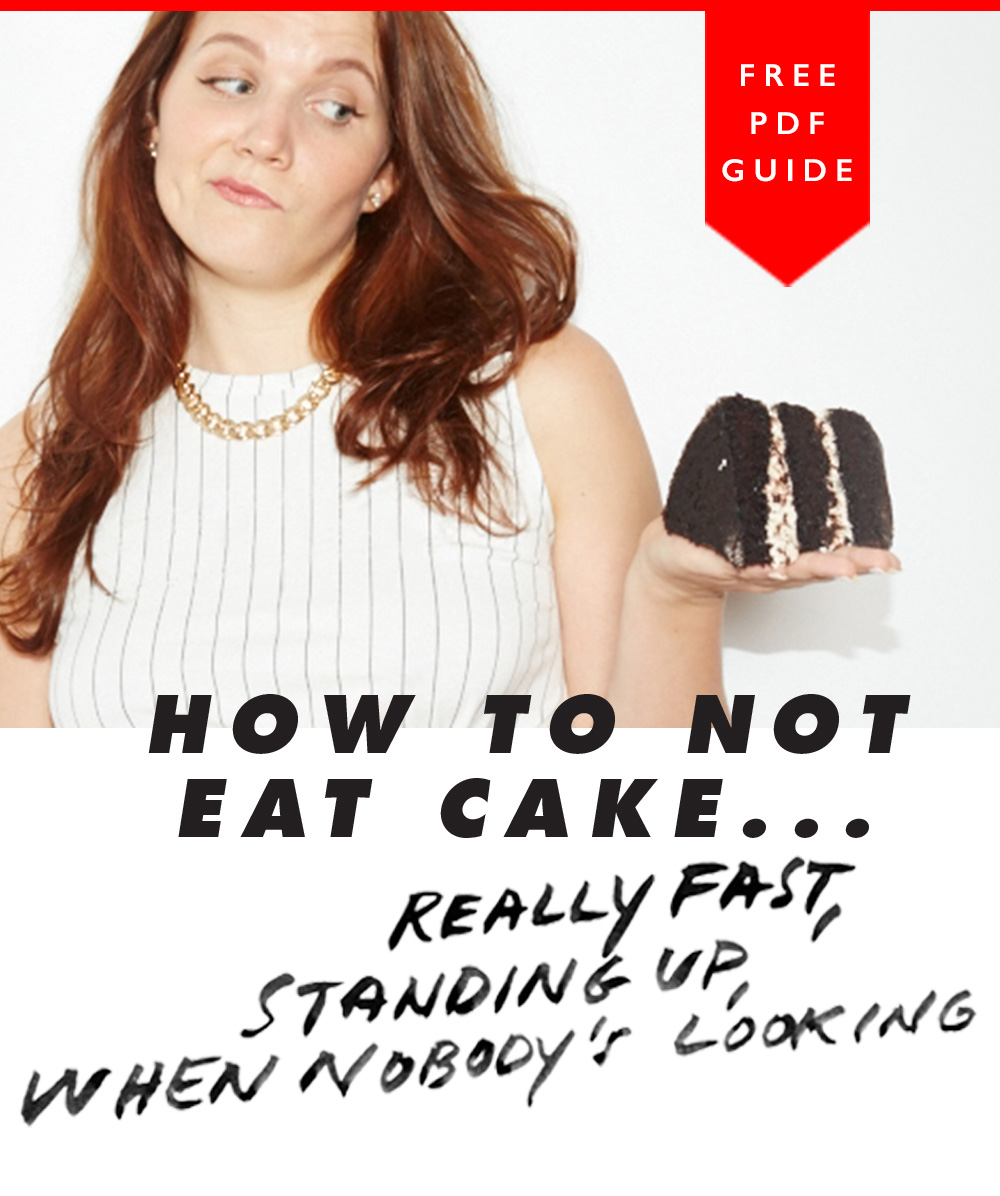When I learn “Intuitive Eating,” will I lose weight?
 Dear Isabel,
Dear Isabel,
I understand that trying to eat intuitively while focusing on weight is impossible, and I also know that weight is not an accurate measurement of health.
But I’d still like to know: if I do get it “right-ish” with food (e.g. heal my binge-eating, and learn to eat “normally”) can I expect weight loss as a result? In other words, will I lose weight in the *long run* through practicing Intuitive/”Normal” Eating?
Good question. The truth is, you might lose weight and you might not.
It all depends on where your body weight currently falls relative to your natural “set point” weight. Your set point weight is the weight that your body naturally tends towards in the absence of interference (e.g. diet-binge cycling, or intentional meddling with your size), and everyone’s set point weight is different.
While a “normal eater” may naturally fluctuate around their set point by 5-10lbs, a dieter (or someone struggling with diet-mentality) may fluctuate more severely—leaving you farther from, or nearer to, your natural set point weight (up or down) depending on where you currently are in your personal yo-yo cycle.
To use myself as an example—at my lowest weight in the diet-binge cycle, I was about 35lbs less than my current natural set point weight (that is, the weight I naturally maintain without effort); and at my highest weight in the diet-binge cycle, I was about 20lbs heavier than my current natural set point weight.
When I chose to stop dieting for real, I happened to be somewhere in between—about 10lbs above my current set point weight, and therefore lost about 10lbs when I healed my relationship with food. That being said, had I stopped dieting at a different point in my weight cycle, that number might be completely different—it all depends on where your weight is now, relative to your natural set point weight.
**It’s also worth noting that when I first stopped dieting, I initially gained weight in the first year or so, and then lost weight over the following couple of years. Not only is everyone’s “end result” different, the road to our set point is not always a straight line—likely because recovery from our “food issues” doesn’t usually happen in a straight line either. It usually looks more like this.**
Also, for those of you dying to know,
the only way to find out what your personal set point weight is—is to work towards developing a healthful relationship with food (both physically and mentally) and see what happens.
Don’t bother assuming or trying to guess what you *think* it is (or ‘should be’)—as that’s a trap that will surely keep you in the cycle. Guessing creates expectation—which fast-tracks you to self-judgement around food (aka emotional or subconscious restriction; which almost always leads to binge-eating, emotional eating and continued swings for those struggling with diet-mentality).
Guessing your set point range is also pointless because your set point range can change over time. In other words, just because you were 140lbs when you first started dieting, doesn’t mean that you’ll necessarily go back to that pre-dieting weight after years of restriction. Some factors that may affect your set point over time include things like age, pregnancy/child-birth, hormones, and diet-history.
Yup—dieting can push up your set point weight range over time—as restriction that leads to temporary weight loss, can also lead to permanent changes in your metabolism in the other direction. This is likely why dieting is the number one risk factor for increased weight over time.
Ultimately, you will likely always bounce around your set point weight over time, because your body is constantly fighting to get there, and it’s a lot stronger than your will power (for literally 95% of people—hence the phrase, “diets don’t work”). Most people are not capable of “changing” their set point weight, or dieting below it for very long before they inevitably rebound. In other words, your set point weight is your “sustainable” weight by definition.
Given this information, the real question is, do you want to embrace your set point weight, stop diet-binge cycling, and eat relatively “normally?”
OR do you want to keep trying to suppress it against all odds, experience more dramatic swings around it (in both directions), with a likelihood of pushing your weight up further and further over time?
I personally chose to cut my losses on attempts at weight suppression—a side effect of which, was that I stopped bingeing over time.
Want more stuff like this? Check out the Stop Fighting Food Free Video Training Series here.
Want to go EVEN DEEPER? Get in on my flagship coaching program, the Stop Fighting Food MASTER CLASS.

